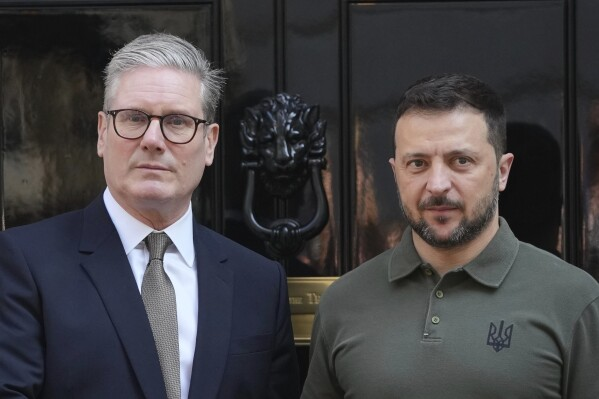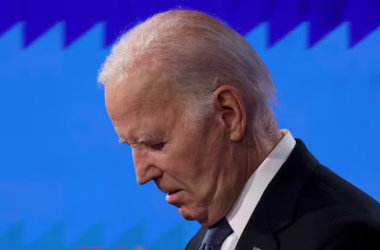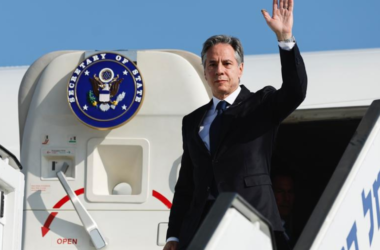In a move that underscores the UK’s cautious approach, the British government has turned down Ukrainian President Volodymyr Zelensky’s request to deploy British-made Storm Shadow missiles in Ukraine’s ongoing offensive into Russia’s Kursk region. This decision highlights the complexities and sensitivities surrounding the use of Western weapons in the conflict, as Kyiv pushes deeper into Russian territory, hoping to topple President Vladimir Putin.
Zelensky’s appeal to London comes amid Ukraine’s surprising success in its cross-border incursion into the Kursk region, a strategic area in southern Russia. Ukrainian forces, according to Kyiv’s top general, have now seized control of around 620 square miles of territory, delivering a significant blow to Russian military efforts. Yet, despite these gains, Zelensky has been eager to escalate the pressure on Russia by using long-range Western weapons, such as the Storm Shadow missiles, to strike deeper into Russian territory.
The UK government, however, has been firm in its stance. A government source confirmed that there has been no change in policy, stating that the use of British missiles for strikes inside Russia remains off-limits. This decision is consistent with the UK’s long-standing position to avoid direct involvement in attacks on Russian soil, a stance shared by other Western nations that have provided military aid to Ukraine. The UK, alongside France, which co-manufactures the Storm Shadow missiles, continues to restrict their use to defensive operations within Ukraine’s internationally recognized borders.
Despite Zelensky’s efforts to persuade the UK during a recent visit, including direct appeals to Prime Minister Sir Keir Starmer, the British government remains cautious. This restraint reflects concerns over potential escalation that could drag NATO into a broader conflict with Russia. The West’s refusal to supply Ukraine with long-range weapons, such as the US-made ATACMS missiles, further illustrates this cautious approach.
The ongoing Ukrainian offensive in Kursk has undoubtedly shaken Russia. For the first time since World War II, foreign troops have taken control of Russian territory, with Ukrainian forces making significant inroads. The operation, which remains shrouded in secrecy, has reportedly led to the displacement of over 120,000 Russian civilians and has caught the Kremlin off guard. Despite this, President Putin remains defiant, downplaying the impact of the Ukrainian incursion while reaffirming Russia’s commitment to its offensive in eastern Ukraine.
The situation has created a precarious scenario. While Kyiv has claimed its forces are “fulfilling their tasks” and maintaining control over the region, the Russian military has scrambled to respond, sending reinforcements and launching counterattacks. The offensive’s success challenges the Russian military’s previous assumptions and has forced the Kremlin to reevaluate its strategy, potentially drawing more resources to defend its border.
The broader implications of the UK’s decision to deny Zelensky’s request are significant. By refusing to allow the use of its missiles for strikes inside Russia, the UK is signaling its commitment to de-escalation, even as it continues to support Ukraine’s defense against Russian aggression. This delicate balance reflects the West’s cautious approach to the conflict, aiming to support Ukraine while avoiding actions that could lead to a direct confrontation with Russia.
As the conflict continues to unfold, the situation remains fluid. Zelensky’s determination to push deeper into Russian territory, coupled with the West’s reluctance to fully back such moves, sets the stage for a complex and potentially dangerous escalation. The world watches closely as the balance of power in the region shifts, with the UK and its allies walking a fine line between supporting Ukraine and avoiding a broader war with Russia.








